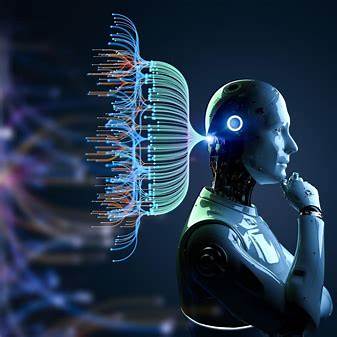AI Literacy
The Essential Skill for Professionals in 2025
Discover why AI literacy is a must-have skill for modern professionals. Learn the benefits of artificial intelligence, practical industry use cases, and how to build your AI skills today.
What is AI Literacy?
AI literacy means understanding how artificial intelligence works, how it’s used, and how to use it effectively. It’s a key skill for navigating today’s tech-driven workplaces. It includes:
– Comprehension: Knowing how AI systems are built and trained.
– Application: Using AI tools to improve tasks and workflows.
– Evaluation: Identifying ethical concerns, data bias, and accuracy.
– Adaptability: Staying updated with AI tools and trends.
Why AI Literacy is Crucial in the Workplace
1. AI is Already Part of Your Job.
From Gmail’s autocomplete to Zoom transcription, artificial intelligence powers daily tools. Understanding them makes you more productive.
2. AI Helps You Make Better Decisions.
With AI, you can analyze more data, faster. If you’re AI literate, you can draw smarter conclusions from tools like Excel AI, Tableau, or dashboards.
3. Job Security and Career Growth.
As AI becomes standard, people with artificial intelligence skills are more likely to be hired, promoted, and retained.
Examples of AI Literacy in Real Life
Healthcare: Doctors use AI to read X-rays and predict health risks.
Retail: Online shops suggest products using machine learning.
Education: Teachers use AI tools to create quizzes and summarize content.
Finance: AI monitors fraud and helps predict market shifts.
4. How to Start Learning AI Literacy
1. Take an Online Course
Platforms like Coursera, Google AI, and edX offer beginner-friendly courses.
2. Try AI Tools
Use free tools like ChatGPT, Notion AI, or Google Bard for writing, planning, or data.
3. Join AI Communities
Follow newsletters, YouTube channels, or LinkedIn groups that share AI tips.
4. Read Easy AI News
Websites like TechCrunch or The Rundown AI explain news in plain English.
5.Ethical Use of AI Tools
Being AI literate also means understanding the risks:
Bias: AI can reflect biases from the data it’s trained on.
Privacy: Know what data you’re sharing with AI platforms.
Transparency: Always check how an AI system made its suggestion.
Conclusion: AI Literacy Is the New Digital Literacy
Whether you’re in HR, marketing, sales, or healthcare—AI literacy gives you a career edge. It helps you:
– Use AI confidently
– Stay employable
– Understand tech changes
– Work smarter, not harder
Learning AI literacy doesn’t mean becoming a coder. It means becoming smart about how artificial intelligence is changing the world—and how you can benefit from it.
Discover more from Bright Brain
Subscribe to get the latest posts sent to your email.


